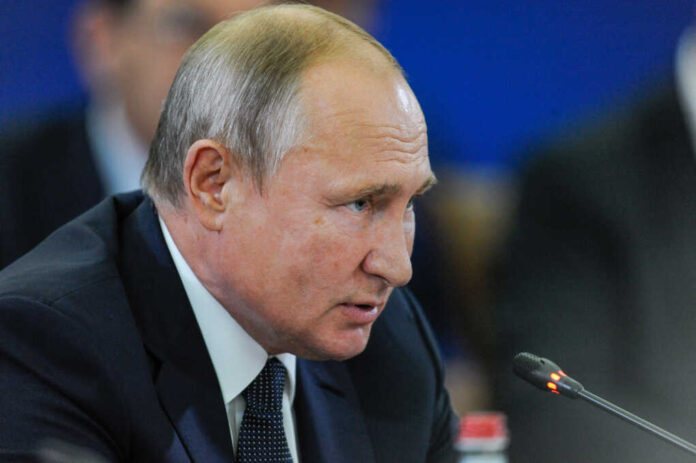
Russia’s new offensive in eastern Ukraine pushed the war to the brink as leaders gather in Istanbul for the first direct peace talks in three years, with Trump’s intervention raising stakes for a fragile ceasefire.
At a Glance
- Russia seizes more territory near Donetsk ahead of Istanbul peace talks
- Zelenskyy demands Putin’s attendance and a 30-day ceasefire
- Trump claims credit for initiating the negotiations in Turkey
- Russia resists ceasefire demands, casting doubt on breakthrough hopes
- Western leaders expand sanctions and legal pressure on Moscow
Turkey Hosts High-Stakes Gamble
As Russian troops tighten their grip on key Ukrainian towns near the Donetsk and Dnipropetrovsk border, diplomats from both sides have arrived in Istanbul for what could become the most significant peace negotiation since the war’s 2022 escalation. The talks, brokered by Turkish President Recep Tayyip Erdogan, mark the first direct engagement between Ukraine and Russia in three years.
Ukrainian President Volodymyr Zelenskyy has demanded a 30-day ceasefire to facilitate dialogue—backed by a coalition of Western nations and an unexpected ally: U.S. President Donald Trump. “I insisted that that meeting take place and it is taking place,” Trump declared, signaling renewed American involvement.
Watch a report: Russia, Ukraine Head to Istanbul for Peace Talks.
Yet hope for rapid de-escalation is already dimming. Russia has proposed talks without a ceasefire, raising fears of a diplomatic standoff. President Vladimir Putin’s attendance remains unconfirmed, with Zelenskyy warning, “If Putin does not show up… it will clearly demonstrate that Russia is not ready to end the war.”
Diplomacy Meets Geopolitical Chess
Turkey’s emergence as mediator places it at the heart of the world’s most volatile conflict. Erdogan, eager to showcase Turkey’s global influence, has welcomed China’s endorsement of Ukraine’s ceasefire appeal. Meanwhile, Europe braces for either breakthrough or betrayal. The EU’s newly adopted sanctions package and Poland’s closure of Russian consulates underscore the growing divide between Moscow and the West.
Russia’s hardline terms—insisting on “denazification” and denying territorial concessions—remain a core obstacle. Ukrainian negotiators, under Zelenskyy’s direction, refuse to yield sovereignty. Tensions also linger over Russia’s 2014 downing of Malaysia Airlines Flight MH17, which is once again spotlighted amid fresh international legal threats.
Regional Fallout and Global Stakes
The outcome in Istanbul could reshape not only Ukraine’s future but Eastern Europe’s geopolitical map. Neighboring countries like Poland, Slovakia, and Romania are preparing for post-talk fallout, whether peace or further escalation. Moscow, feeling pressure from mounting international isolation, may look to extract concessions without halting its advance.
“If Putin doesn’t commit now, this conflict risks metastasizing,” warned a senior EU official involved in the sanctions effort. The specter of a failed summit looms large, but so does the potential for a ceasefire to take root—if only temporarily.
With both hope and distrust flooding the Bosporus, the Istanbul peace talks may prove either a historic pivot or yet another pause in a war with no clear end.





























